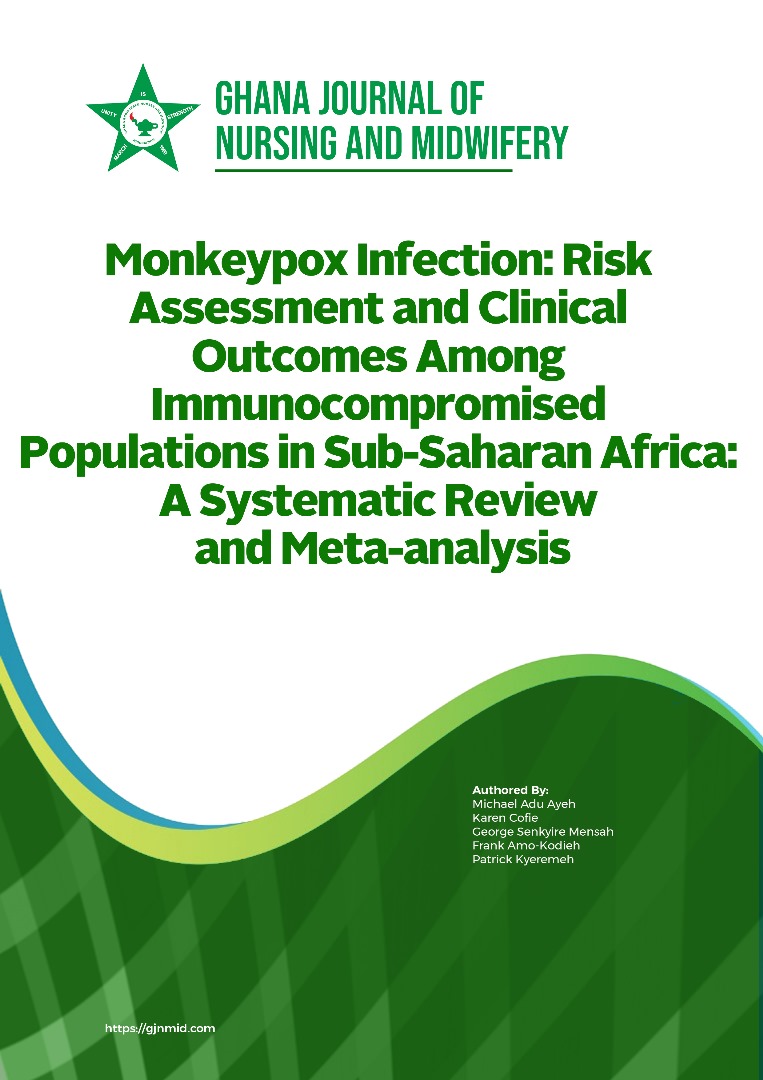Monkeypox Infection: Risk Assessment and Clinical Outcomes Among Immunocompromised Populations in Sub-Saharan Africa: A Systematic Review and Meta-analysis
Main Article Content
Abstract
This systematic review and meta-analysis examined monkeypox infection outcomes among immunocompromised populations in Sub-Saharan Africa, with particular focus on clinical implications for Ghana and neighboring countries. Following PRISMA guidelines, the study analyzed 36 peer-reviewed articles from 1970-2024, employing comprehensive data visualization and statistical analysis techniques.
Key findings revealed significant correlations between immune status and disease outcomes, with HIV+ patients showing 2.8 times higher risk of severe outcomes [32]. Healthcare access disparities substantially impact treatment efficacy, with urban centers achieving 75-82% access rates compared to 38-45% in rural areas [25, 26]. Clinical progression analysis demonstrated extended recovery periods for immunocompromised patients, with symptom resolution taking up to 8 weeks compared to 4 weeks in immunocompetent individuals [16, 17].
Recommendations include implementing immune status-specific treatment protocols, establishing rapid response systems for rural areas, and developing specialized care pathways for immunocompromised patients. For Ghana and other Sub-Saharan countries, priorities include strengthening rural healthcare infrastructure, enhancing surveillance systems, and implementing targeted prevention strategies for vulnerable populations [2, 3, 32]. These findings provide crucial guidance for healthcare practitioners managing monkeypox in resource-limited settings.
Downloads
Article Details

This work is licensed under a Creative Commons Attribution 4.0 International License.
Copyright (c) 2024
This work is licensed under a Creative Commons Attribution 4.0 International License.






